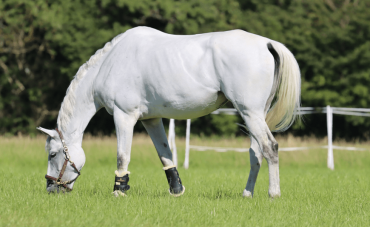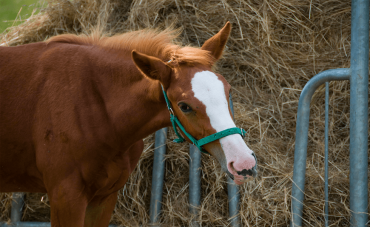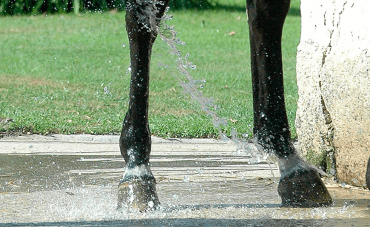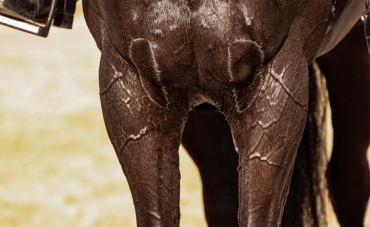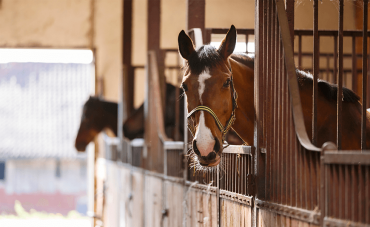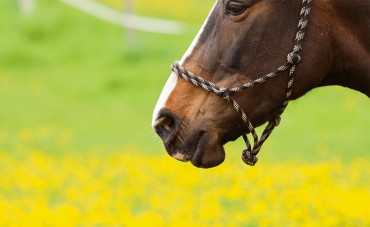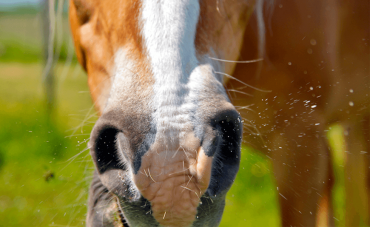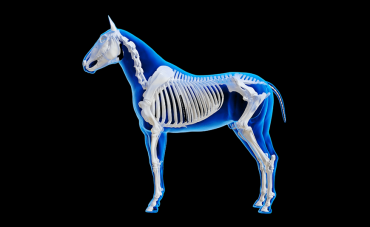It is often thought that horses are most susceptible to respiratory problems in the winter. This is because they spend more time indoors or eating, so they are more exposed to dust from hay and straw, for example. However, when summer arrives, your horse's respiratory tracts can also become compromised.
Respiratory signs that should alert you
If your horse's airways are affected, he may present very different symptoms such as coughing, nasal discharge (during exercise or even at rest), fever, faster and/or noisy breathing, difficulty in recovering or even a decrease in performance...
As we have seen in our article on coughing, even if your horse's cough does not seem to be serious, it is important to take care of it quickly to avoid further aggravation that could spread into the respiratory tract.
The "typical" pathologies of the summer
Like the signs, the causes of respiratory pathologies can be numerous. However, during the summer, the rise in temperature often leads to dry soil, which increases the amount of dust in the air. In addition to this, the level of pollen in the air can be quite high.
Dust and pollen are the two main allergens involved in respiratory conditions such as emphysema.
In the respiratory pathologies that are common during summer, we find all the infectious diseases such as influenza, rhinopneumonia, etc... In fact, the horses that are meant to be brought to competitions or gatherings will leave their stables but also mix with other horses, who may be carriers of these different diseases, which increases the risk of contamination.
Finally, we sometimes don't think this issue can affect horses, but with the strong heat, it happens that the air pollution is a little more important (especially near the big cities). Some horses may be sensitive to this pollution and suffer from respiratory problems during pollution peaks.
What can you do to protect your horse's airways in summer?
Monitor your environment
We've talked about it a lot in our previous articles, but environmental management is the best "treatment" and/or prevention for respiratory problems.
In summer, allergens can be very present in the paddocks and/or meadows, so it can be interesting to choose the periods of outings. For example, if you have cultivated fields nearby, avoid leaving the horse outside when working with dust. In addition, in case of periods with a lot of pollens, night grazing may be preferable. It can be interesting to select pastures with a lower quantity of pollen, trying to limit the number of trees nearby or trees that produce less pollen.
All year round, if your horse has an important part of dry fodder in its diet, think about limiting the dust of it. Don't hesitate to wet it before distribution, this will capture the dust and limit the inhalation by the horse. Finally, if your horse lives outside, you should avoid feeding it directly on the ground if it is very dusty, it is better to give it in a bucket.
For working horses, don't neglect the environment where you do your sessions. As far as possible, work in low-dust quarries (watered regularly...) but also keep an eye on your walking paths which, with the heat, can also quickly become dusty. The work is as important to watch as the place of life, because when it is under effort, your horse can dilate its nostrils and thus "absorb" more dust.
Feeding to the service of respiratory tract
Like the rest of the year, keep an eye on your horse's diet. With the heat and the fact that it is more difficult to breathe, your horse can lose more water and elements through perspiration, so don't forget to give him plenty of water and use electrolytes if necessary. In addition, if your horse is breathing more heavily, his energy consumption may be increased and his diet will need to be adjusted.Don't hesitate to ask your veterinarian for advice.
You can also support your horse's breathing using nutritional supplements. Some essential oils (Niaouli, Rosemary, Eucalyptus, Scots Pine) can help horses' respiratory comfort. Balsamic Air and Balsamic Control contain some of these essential oils to help your horse throughout this challenging period.
As always, if you have any doubts about your horse's breathing, reach out to your veterinarian.
If you have any questions regarding your horse's breathing, feel free to contact us on social media.

